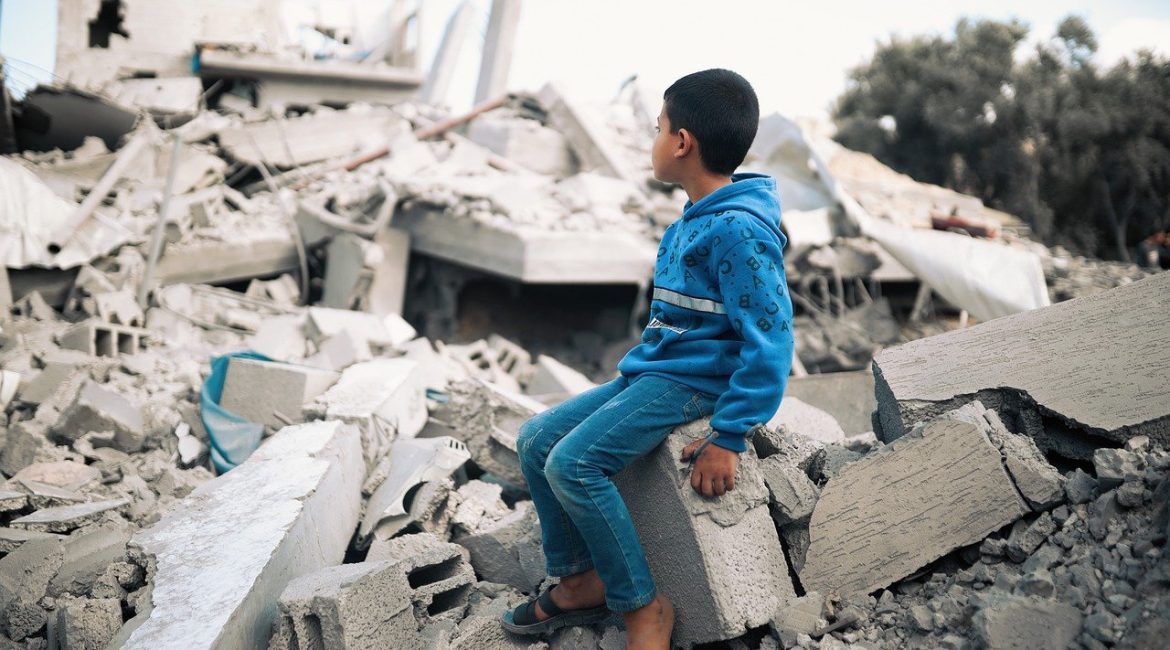To all those who despair at the dramatic situation of the Palestinian population in Gaza, trapped by the indiscriminate bombings of the Israeli army, it should be said that a political path exists to obtain a humanitarian truce, in order to help these hundreds of thousands of innocent civilians trapped in that hell. This path is very narrow, but difficult and requires every political actor on this planet to take his responsibility.
Recently, during a special session, the United Nations General Assembly adopted the resolution entitled “Protection of civilians and compliance with legal and humanitarian obligations”, by 120 votes for and 14 against. This resolution calls for an “immediate, lasting and sustained humanitarian truce, leading to the cessation of hostilities”.
To assess the importance of this event, it is necessary to know that the UN General Assembly can only address questions of international peace and security if the Security Council is recognized as being in an impasse, because of the veto of its permanent members. The resolutions then adopted by the Assembly are, of course, not binding, but truly represent the will of the international community, which means that each State is faced with its political and even moral responsibility to respect it.
Therefore, the international community, within the framework of the Extraordinary General Assembly of the United Nations, has taken, by a large majority, the decisions to end , if not directly to the Israeli-Palestinian conflict, but, at least, to the serious humanitarian crisis that is developing and could turn into a huge mass war crime.
This resolution calls for several things, including:
- “an immediate, lasting and sustained humanitarian truce, leading to the cessation of hostilities”, which would permit “that the provision of essential goods and services to civilians throughout the Gaza Strip […] be ensured immediately, without hindrance and in sufficient quantities";
- “the cancellation of the order given by Israel […] to evacuate all areas of the Gaza Strip located north of Wadi Gaza” and “the immediate and unconditional release of all civilians who are illegally held in captivity”;
- the resolution expresses "its strong support for any action taken at the regional and international levels to achieve an immediate cessation of hostilities, ensure the protection of civilians and provide humanitarian aid" and "calls on all parties to demonstrate the greatest restraint and on all actors who have influence over them to work towards the achievement of this objective".
This means for all member countries of the United Nations to immediately take political initiatives to enable the application of this resolution.
But, how can we effectively force Netanyahu's government to proclaim "an immediate, lasting and sustained humanitarian truce", and how can we ensure the delivery of relief without hindrance, and demonstrate restraint in accordance with international law? This political responsibility applies to the United States even if it voted against the resolution, if it wants to respect the international community. This applies to France, which voted for this resolution, if it does not want to be accused of practicing diplomatic double-standards. This applies to the European Union and Ms Ursula von der Layen, who is so active in supporting Ukraine, to actively promoting these United Nations recommendations.
The question is how to take concrete political and economic measures to effectively increase the pressure on Netanyahu. Should we consider any boycott measures such as stopping supplies of arms, munitions and intelligence to Israel by the USA, or a commercial and financial boycott by the European Union? Still on the economic level, we know that Türkiye could exert considerable pressure by blocking the pipeline from Azerbaijan or Iraqi Kurdistan and supplies Israeli reservoirs.
Throughout public opinion in the Middle East, the impression which prevails is that there is a “double standard” in the application of international law. Emmanuel Macron tried without much success to free himself from this, during his last visit there, by affirming that he did not make a distinction between Israeli and Palestinian victims. The rapid, effective and sincere implementation of the UN recommendations will be a decisive test to show the true wishes of the main world powers to foresee a concrete political path to save the lives of tens of thousands of civilians in Gaza, but also in the West Bank and in Israel, and to open a way towards a peaceful coexistence of the two peoples, Israeli and Palestinian, in two sovereign States.

